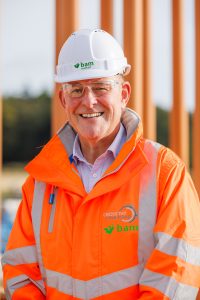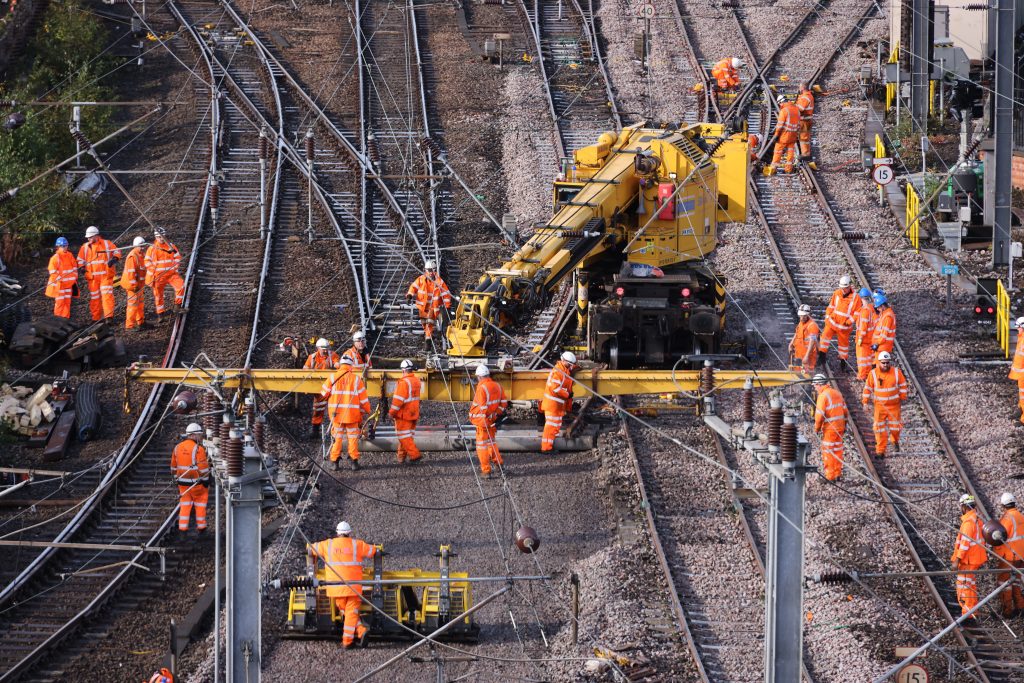Companies in any competitive market are naturally reluctant to turn down work, but that is something that Bam UK & Ireland chief operating officer John Wilkinson tells us is now a necessary part of good business strategy.
With moves to greater collaborative working and a greater emphasis on wellbeing and sustainability, he feels the industry is mature enough to make that decision. The expanding complexity and scale of projects in sectors like energy and water, mean more emphasis will be put on the right work, not the cheapest.

John Wilkinson is COO of BAM UK & Ireland
“We’re very focused on helping clients understand true risk allocation across project delivery and who is best to own that risk throughout. That means looking at how to incentivise everybody in delivery and achieve better projects.
“We can see that being supported now by the way delivery is changing and the models with which you execute each project. There’s the whole piece around Project 13, and alliancing models can ensure everybody is incentivised for the right outcome, including the client. Driving strong relationships throughout is more and more vital to good delivery of even the most complex projects.”
Our industry has heard this sort of talk before, and it hasn’t always lasted. Wilkinson acknowledges that but does see cause for optimism this time around.
“I think in the past, to a degree, there has always been a bit of a trust issue in this industry. Clients always seemed to think contractors were making millions, whereas we know that if you’re achieving a 3.5% or 4% EBITDA, you’re training very strongly. And at those margins, one big project that goes wrong hurts the business for a long time.
“So, all parts of our supply chain need to be more transparent. And that includes us. We launched our new strategy at the beginning of this year and it sets out where we’re focused and, just as importantly for others, where we’re not.”
That strategy sets out core market sectors that Bam believe are right for them, not just in terms of financial performance, but also in terms of sustainability – which runs deeper than just decarbonisation. Wilkinson is keen to stress it is just as much about diverse aspects of social value and impact, as well as how decisions are made.
As a result, the company is now turning away work that doesn’t fit with its outlook. ”We can’t keep knocking things down and rebuilding just because a client feels familiar with that. Not if we want to be sustainable. We know how projects are delivered and we aren’t willing to have our expertise overlooked when early decisions are made that will impact on the success and sustainability of delivery. “So, we have stopped bidding for any lump sum single stage projects above €150M.”
That is quite a commitment to make, and Wilkinson isn’t shy about why it matters. “Those projects that just land on our desk like that, we send them back now because it’s crazy to think a project can be planned well without the people who’ll build it being engaged and advising from the earliest stages.”
This reflects a significant change across the industry, which he believes has matured in ways that allow for such an approach now.
“It isn’t just us. When I first came into this industry, we only spoke about four things. It was programme, cost, quality and health and safety. Now there’s so much more on top of that, not least with sustainability, that clients actively want to come on a comprehensive journey with us – use our expertise and experience and design the project itself properly from the start.
“That doesn’t mean there aren’t clients out there that are still just interested in having their project delivered at the lowest price. But when you get into that sort of market, that’s when you end up with projects where costs over run and they end up late in execution.
Wilkinson offers examples of where this is done right and what motivations drive that. “Network Rail is a great example. If you’re shutting a railway and you don’t reopen it on time, the impact on the public is far more important than, say, saving an extra £50,000. So Network Rail wants to work with people who understand how that project will operate. The prescriptive nature of time and the thoroughness of the planning that goes into that complex work is actually the key focus for them. They want to be able to work with the contractor who can give them that guarantee and have the reputation of doing what they say.
“And it’s great that we are seeing this in other areas as well. The energy sector is going to be a key one for this. The UK is undertaking a huge overhaul of its energy infrastructure and you’ve probably got three, maybe four major suppliers of things like the big gas insulated switch gear.
For those companies, a £3bn order for switch gear in their pipeline is business as usual, so they’re going to send you your switch gear on the day that you’ve asked for it and you’d better make sure you’re ready to take that switch gear into place on that day. So again, the ability to plan from very early on in order to deliver each part of the project on time becomes a far bigger aspect of success than the cost a company bids at.”
Creating certainty can be a real challenge still, and Wilkinson isn’t naïve despite his optimism. He recognises that it is one thing to turn away the wrong types of projects when your order book is up 22% as theirs is, and potentially quite another when the market is more challenging. As a result, he feels it all has to be based on some very fundamental red lines that last.
“Einstein said the definition of madness is to keep doing the same thing and expect different results. That applies to our industry and I’m glad other companies are taking similar decisions to change things. Because it’s not just about the project, it’s about the people involved”, he says.
“Our new strategy puts a big focus on wellbeing of our people. How could that be compatible with taking projects that will generate undue stress? If we take on projects that we know are likely to have over runs, cost issues, conflict and legal disputes, then who do we think is facing that headache? That’s not the environment we want our people working in. So when we say wellbeing matters, that has to be reflected in the projects we take.”
Like what you’ve read? To receive New Civil Engineer’s daily and weekly newsletters click here.
